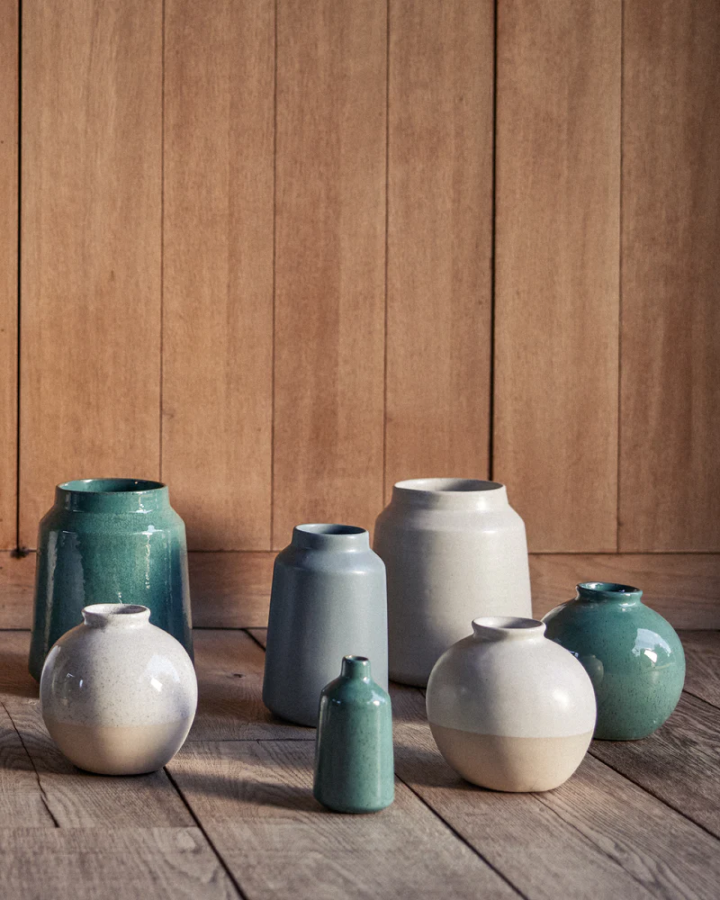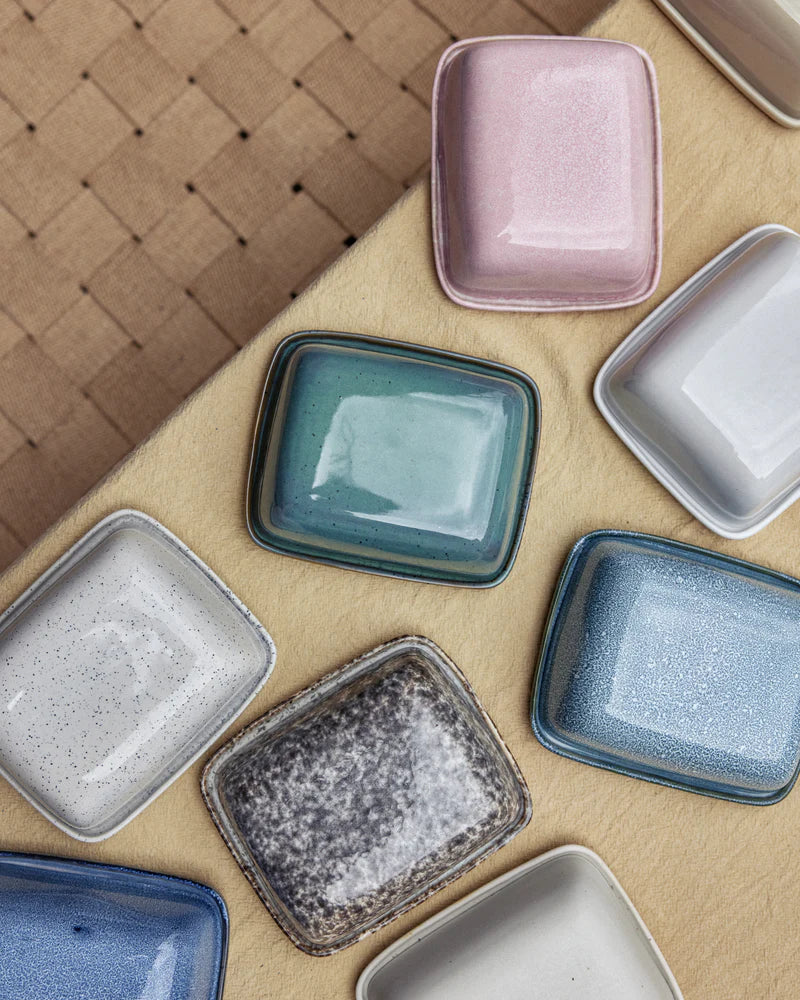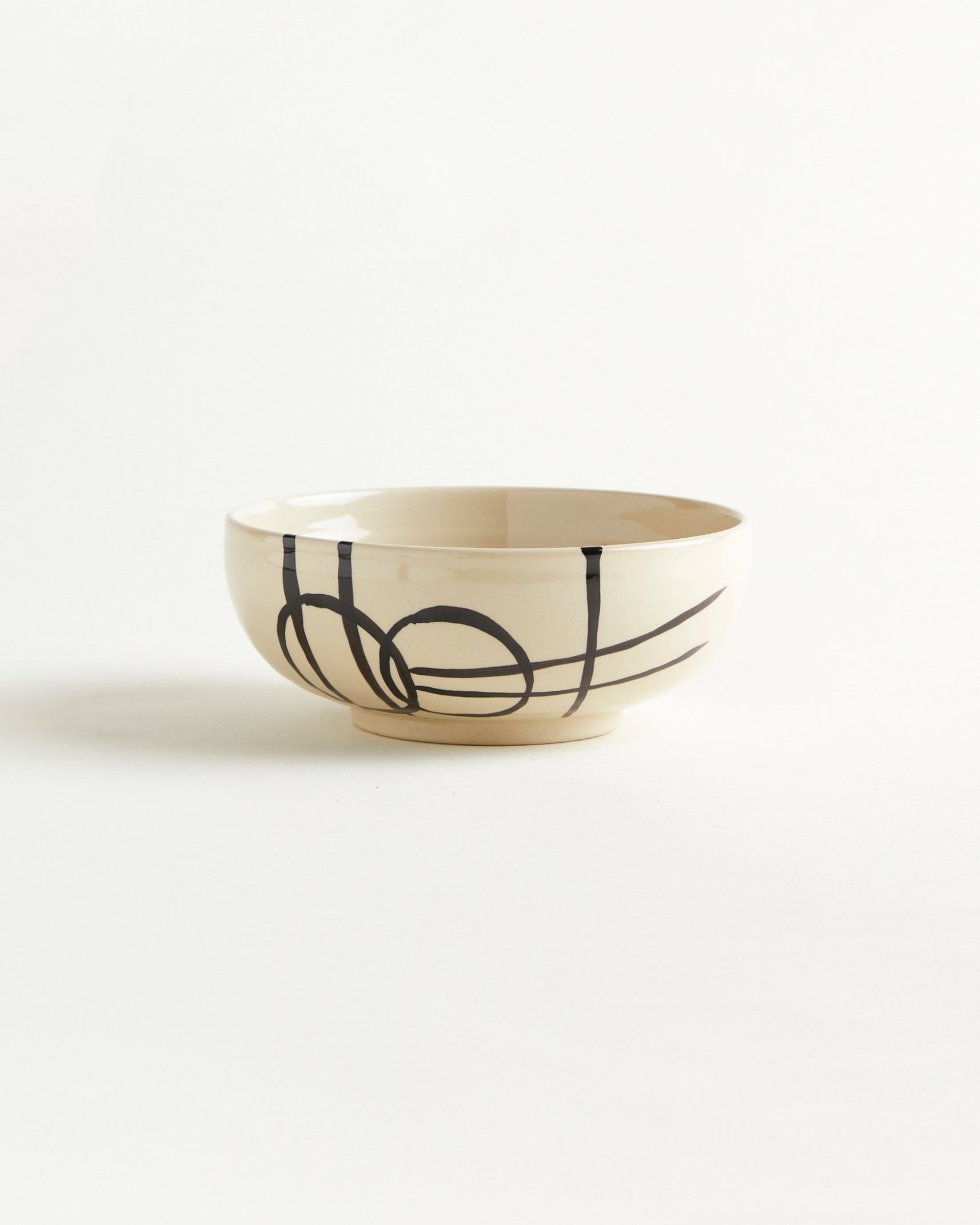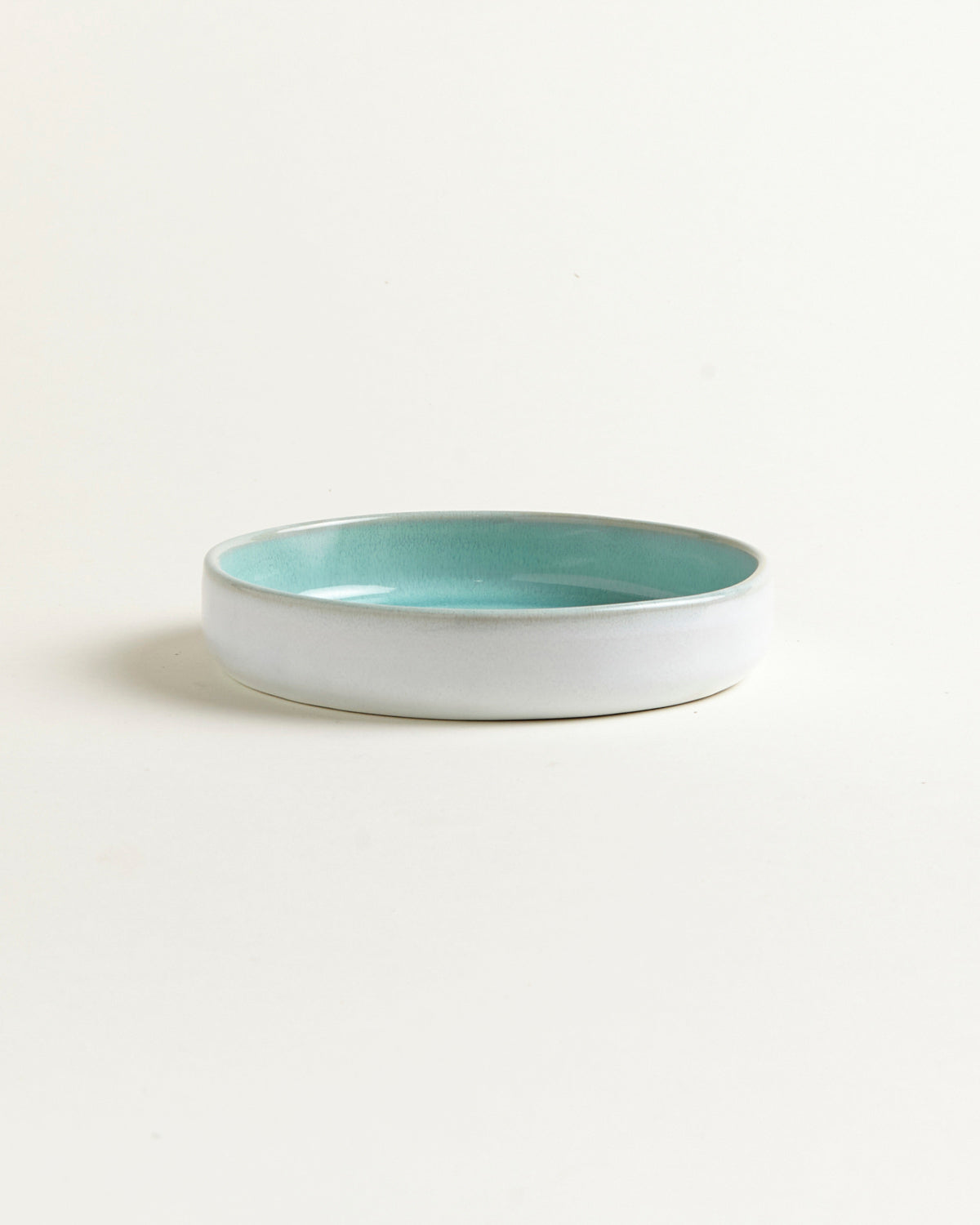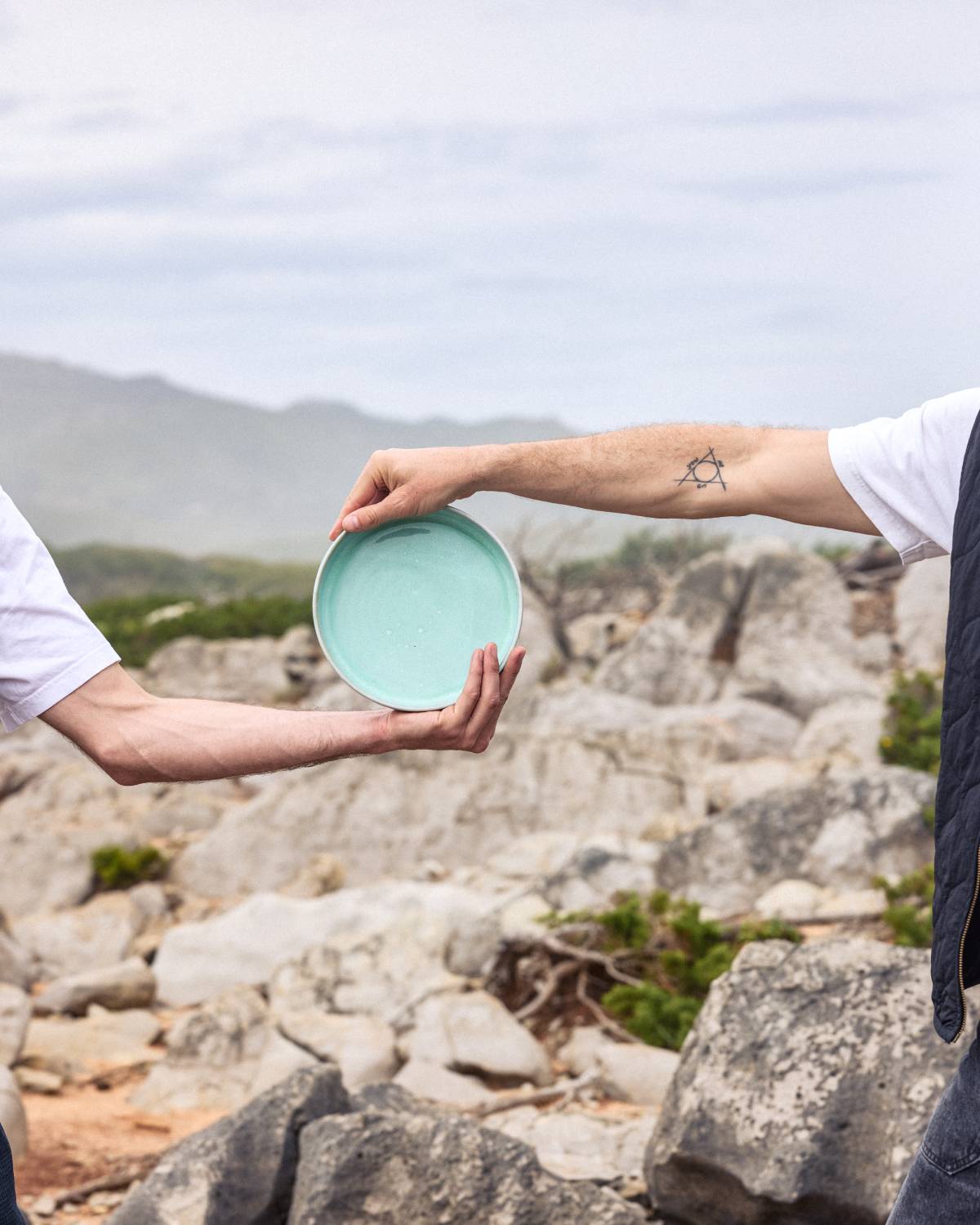



Tom Król x onomao - Cup Eye
Details
Care Instructions
Shipping
Delivery Time
- Current Delivery Time (France, Netherlands, Belgium, Luxembourg): Up to 15 days
- Plastic-free and climate-friendly with DHL GoGreen
Shipping Costs
- France, Netherlands, Belgium, Luxembourg
Shipping Costs: €9.50 - Other Countries
Learn more here
Choose options





IN THE STUDIO WITH TOM KRÓL
Tom has given us an insight into his sources of inspiration
Questions & Answers
That was actually quite clear. I've always drawn and eventually started studying to be an illustrator. When Heiner Blum, my professor at the HfG Offenbach, motivated me to work bigger and in color, the path to painting was not far. Painting opened up new perspectives on art for me and I started working with installations, sound, various printing techniques and photography, among other things. However, my point of view always remained that of a painter.
Painting offers me the opportunity to create something that can be read, but not necessarily verbalized. This is my basic drive. In this, there is no scheme according to which I proceed. My pictures arise when they have to arise. The best approach for me is to have time. Not to feel pressure to work on a specific project, but to really live with the images. Giving myself and them the time and space to develop is the most important thing in this process. Drawing always plays a big role for me in this.
For me, while working with ceramics, it was particularly interesting to think spatially. The canvas or paper is flat. By working with and on a three-dimensional body, new aspects became important. This challenged me, but also allowed me to approach it with a new freedom. I found the aspect of time in dealing with ceramics particularly interesting: how many and which processing phases of the clay are needed between the individual steps of shaping, firing, painting and glazing. In comparison, painting is more spontaneous, but perhaps more careless steps are taken. Working with clay requires much more planning.
Over the last few years of constantly recording and processing everyday impressions, a code, a style, or whatever you want to call it, has unfolded in me. From this I help myself. New things flow in, forms from the past emerge again and again. The concrete inspiration and the drive to continue researching are for me the interpersonal interactions of everyday life. Little things trigger me and the idea for the next painting is there.
New content loaded




